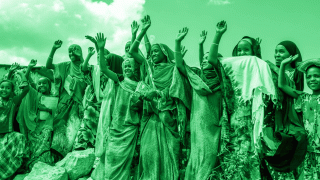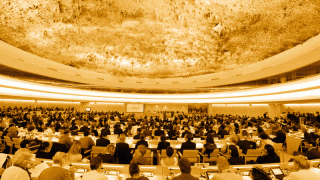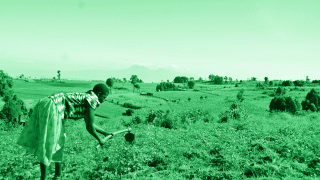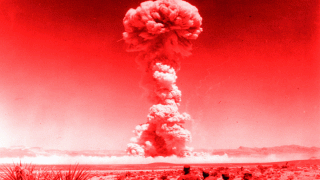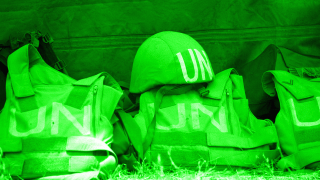
UN PEACEKEEPING - GREEN
The UK makes a significant contribution to UN peacekeeping – politically and financially and by providing around 700 troops. But it could do so much more.
This scorecard assesses the UK's performance on key areas using impartial sources. Applying our methodology, we scored the UK green as its actions are helping to strengthen the rules-based international system.
Our rationale
The House of Lords Select Committee on International Relations welcomed the UK’s increase in contributions to UN peacekeeping: “the numbers of personnel were small but praised the UK’s specialised assistance... The UK should consider how it can add value to the range of capabilities available to UN peacekeeping.”
Our analysis
UN peacekeeping is one of the international community’s most important tools. Over the past 70 years, UN missions have helped to end conflicts and foster reconciliation in dozens of countries, from Liberia to Tajikistan. Studies have found it to be more effective and substantially cheaper than comparable operations.
The UK has a commendable record on UN peacekeeping. It is one of the largest financial contributors and used to be one of the largest contributors of troops. While troop numbers have been relatively small since the 1990s, the UK recently pledged to double its total number of peacekeepers with a deployment of 370 troops to Somalia and South Sudan, in addition to its longstanding commitment to Cyprus. As a permanent member of the Security Council, the UK also plays a vital role in the creation of missions.
However, there is reason and scope to do more. The UK has not announced how it intends to continue its deployments beyond 2020. It could use this opportunity to announce a long-term strategy for a more substantial engagement with UN peacekeeping. UN peacekeeping can help the UK to address threats to its national security - from extremism to disrupted trade - that it cannot tackle alone, through missions that are collectively funded and staffed.
UK troop numbers are still only modest, representing less than one per cent of the UN’s total uniformed personnel. While it is true that so-called “niche capabilities” like gender experts, which the UK currently provides, are essential and that UK pledges of troops should be led by needs, there is also a broader need for troops with the training and experience, for instance in counter insurgency, that British forces have.
Making this kind of contribution would not only bolster the effective of peacekeeping and the UK’s financial investment in UN operations, it would also enable the UK to build deeper relationships with major troop contributing countries, most of which are from the global South.
Equipment and technology such as helicopters and mobile communications are also sorely needed.
Photo: UN Photo/Marie Frechon/Helmet and Flack Jackets of MONUC Peacekeepers

